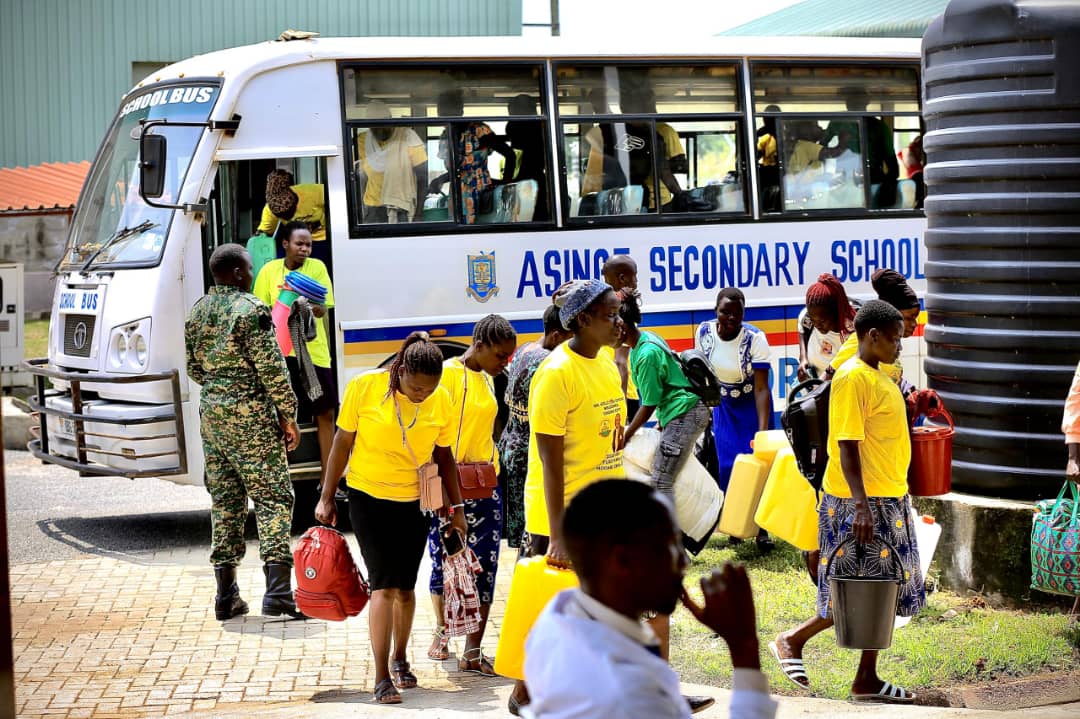Over 4,500 Youth and Women Begin Vocational Training in Presidential Industrial Hubs

KIBUKU – A total of 4,560 young people and women have been enrolled in 19 Presidential Industrial Hubs across Uganda for a six-month vocational training program that officially commenced on August 1, 2025.
The initiative, fully funded by President Yoweri Museveni, aims to tackle youth unemployment and poverty through practical, hands-on training.
According to Eng. Raymond Kamugisha, Director of Presidential Projects and Industrial Hubs, participants will be trained in trades such as tailoring, carpentry, bakery, hairdressing, leather design, and fish farming.
Upon completion, each trainee will receive a Directorate of Industrial Training (DIT) certificate—equivalent to Uganda’s O’Level—and be equipped with startup capital and tools.
“It is a transformative journey,” said Eng. Kamugisha. “These young people are not only being trained in vocational skills but are also being prepared to become change-makers in their communities.”
At the Bukedi Presidential Industrial Hub in Kibuku District, 240 new entrants arrived on August 1, marking the fourth intake.
The hub serves eight districts in the Bukedi sub-region and Tororo Municipality.
“We offer seven practical courses, including bakery, tailoring, and carpentry,” explained Teddy Ouma, Manager of the Bukedi Hub.
“Learners are trained for six months and assessed before being awarded DIT certificates.”
The Bukedi Hub is also spearheading the implementation of President Museveni’s "Four Acre Model," which integrates vocational training with agriculture.
According to Kibuku RDC Samuel Musiho, the model teaches students how to use small plots of land for food production, dairy farming, coffee growing, and fish farming, particularly relevant to the wetland-dense Bukedi region.
Local leaders have applauded the program’s impact. Butebo District Chairman James Okurut highlighted its accessibility: “Unlike traditional institutions, everything here is free—feeding, accommodation, learning materials. It relieves the financial pressure on families.”
Butebo District Commercial Officer Joseph Karyebi emphasized the initiative’s ripple effects. “Graduates go back to their villages and start businesses. They open salons, bakeries, or shoemaking workshops. Many even train others,” he said.
Since its inception three years ago, 15,480 people have completed training through the hubs. With growing demand, President Museveni is considering expanding the intake from 240 to 500 learners per hub per session.
“The demand is overwhelming,” Kamugisha said. “Thousands apply for just a few hundred slots, which shows how eager young people are to gain employable skills.”
To qualify, applicants must be Ugandan citizens aged 18 to 35, possess a national ID, and undergo vetting by district and hub-level committees.
Looking ahead, the government is developing plans to establish a Technical and Vocational Education and Training (TVET) University to offer diploma and degree programs tailored for graduates of vocational institutes—bypassing the traditional academic route.

“We want people to get degrees in baking, carpentry, or tailoring based on practical skill, not just theory,” Kamugisha explained.
“It aligns with global best practices in vocational education.”
As part of the broader empowerment strategy, trainees are also encouraged to form Savings and Credit Cooperative Organizations (SACCOs), which will receive government support and startup equipment to help graduates launch their enterprises.
At the Mengo Zonal Presidential Industrial Hub in Kayunga District, now hosting its fifth intake, learners from 18 administrative units including districts and municipalities across Greater Mukono, Mpigi, and Luweero have begun their training.
“This program isn’t just about vocational skills,” said Ahamada Ziyinda Musoke, Manager of the Mengo Hub. “Learners are also taken through ideological orientation—instilling patriotism, self-reliance, and a vision for national development.”
The Presidential Industrial Hubs operate under the Skilling Uganda initiative championed by President Museveni to promote inclusive economic growth, job creation, and self-employment through practical training—positioning vocational education at the heart of Uganda’s development agenda.




0 Comments